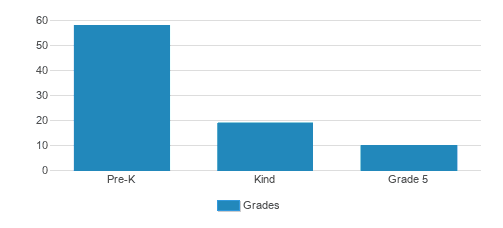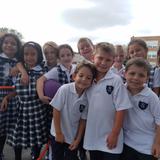At the Montessori Children's School, we provide the sense of security and loving care that toddlers need to thrive during this stage of intense learning.
Since toddlers are especially driven towards achieving independence, our teachers provide responsive, individual attention as your child deals with positive experiences as well as frustration.
The Montessori Children's School curriculum takes advantage of the rapid growth of gross and fine motor skills at this stage.
Dr. Maria Montessori was a medical doctor and pioneer educator who was born in Italy in 1870 and died in 1952.
As her life's work, she developed a teaching philosophy that balances freedom with responsibility in the classroom and also sets high standards of intellectual and social development for children.
The principle and philosophy developed by Dr. Montessori Educational research indicates that children ages 3-6 are extremely capable of learning meaningful things, and that intellectual stimulation given at this age level helps to create the foundation for later academic success.
A program of play alone does not help the young child to organize his or her mental processes, which is necessary for academic learning.
Therefore, the Montessori program is a learning program with a curriculum wherein the children enjoy the work/play environment created for them.
Quick Stats (2025)
- School Type: Montessori School
- Grades: Prekindergarten-Kindergarten
- Enrollment: 60 students
- Application Deadline: None / Rolling
- Source: National Center for Education Statistics (NCES)
School Overview
School Type
School Membership(s)School Assoc.
Religious Affiliation
Grades Offered
Grades Prekindergarten-Kindergarten
Student Body
Total Students
60 students
Student Body Type
Co-ed
Students by Grade

Academics and Faculty
Total Classroom Teachers
5 teachers
Student : Teacher Ratio
12:1
National avg.: 13:1
Tuition and Acceptance Rate
Admission Deadline
None / Rolling
School Notes
- At the Montessori Children's School, we provide the sense of security and loving care that toddlers need to thrive during this stage of intense learning. Since toddlers are especially driven towards achieving independence, our teachers provide responsive, individual attention as your child deals with positive experiences as well as frustration. The Montessori Children's School curriculum takes advantage of the rapid growth of gross and fine motor skills at this stage. Dr. Maria Montessori was a medical doctor and pioneer educator who was born in Italy in 1870 and died in 1952. As her life's work, she developed a teaching philosophy that balances freedom with responsibility in the classroom and also sets high standards of intellectual and social development for children. The principle and philosophy developed by Dr. Montessori Educational research indicates that children ages 3-6 are extremely capable of learning meaningful things, and that intellectual stimulation given at this age level helps to create the foundation for later academic success. A program of play alone does not help the young child to organize his or her mental processes, which is necessary for academic learning. Therefore, the Montessori program is a learning program with a curriculum wherein the children enjoy the work/play environment created for them.
Source: National Center for Education Statistics (NCES)
Frequently Asked Questions
When is the application deadline for Montessori Childrens School?
The application deadline for Montessori Childrens School is rolling (applications are reviewed as they are received year-round).
School Reviews
Endorse Montessori Childrens School. Endorsements should be a few sentences in length. Please include any comments on:
- Quality of academic programs, teachers, and facilities
- Availability of music, art, sports and other extracurricular activities
- Academic or athletic awards
Recent Articles

A Parent's Guide To Understanding High School Teaching Methods
This comprehensive guide helps parents navigate the various teaching methods used in today's high school classrooms. By understanding these approaches, you'll be better equipped to support your teen's learning journey, communicate effectively with teachers, and create a complementary learning environment at home.

February 08, 2025
Social Emotional Learning: Education's Hidden SymphonyA musician's perspective on Social Emotional Learning reveals how this educational framework orchestrates success through five essential emotional competencies.

January 24, 2025
A Roadmap For Starting A Private SchoolUse this roadmap as a set of talking points with your trusted mentors and professionals to start the private school of your dreams. You're not alone. Over the years, hundreds of folks like you have had the same dream. From Quintilian to Maria Montessori to Lucy Madeira Wing, visionary educators have established schools to teach according to their beliefs and methodologies.















